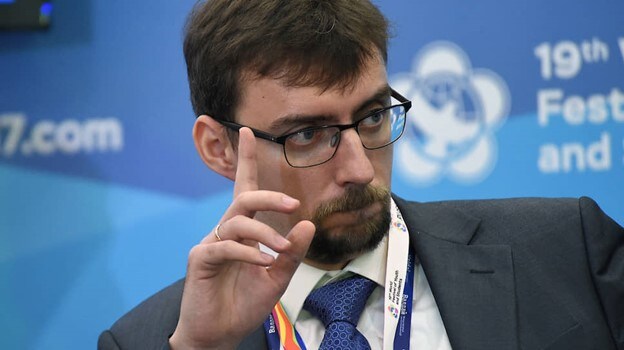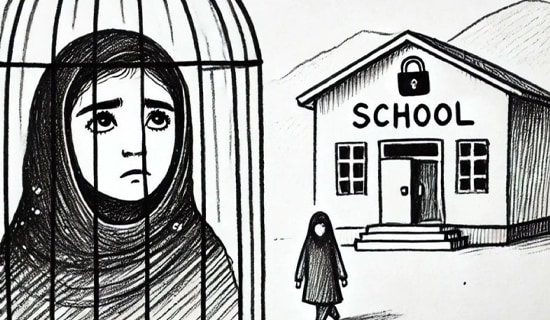Ivan Timofeev, Program Director of the Valdai Club Think Tank, and an expert on the US, who has taught at American universities, believes that under Biden the chances for a successful summit are greater. However, he compares US-Russian relations to a layer cake, whose layers are tangential to each other, and this means that on certain areas such as arms control accommodation is both possible and desirable, but a successful outcome in this field will not spill over to other areas of confrontations. The elephant in the room is Russia's alliance with China that serves as the great equalizer in US-Russia power relations.
Timofeev's commentary follows below:[1]

Ivan Timofeev (Source: Kommersant.ru)
"The forthcoming summit between Vladimir Putin and Joe Biden traditionally gives rise to hopes for improved Russian-American relations. Over the last quarter century similar hopes followed most such similar meetings. History demonstrates that excessive optimism is hardly appropriate in this regard. Many negotiations were conducted in a positive atmosphere, but failed to ameliorate the fundamental contradictions in relations between the two countries. Furthermore, such contradictions only aggravated over time. It is necessary to soberly assess the specifics of the current political situation and the foreign policy tasks of both states.
"The mere holding of a summit is a positive event. The meeting in Geneva is poised to be more successful than the 2018 negotiations between Vladimir Putin and Donald Trump in Helsinki. Unlike his predecessor, the current US president is encumbered to a lesser extent by domestic political constraints.
"He is not at war with the establishment, he is not haunted by an election scandal and accusations of “being in cahoots with Russia.” Possible agreements that the two presidents might reach (however modest) have a chance to develop further. Nevertheless, Russia and the US are coming to the summit in a strategic confrontation mode. The range of fundamental contradictions is quite impressive. The key ones include Euro-Atlantic security, relations in the post-Soviet space, the Ukrainian issue, the situation in Syria, cybersecurity, sovereignty and interference in internal affairs, democracy and human rights.
"For Washington, Moscow is an unyielding and aggressive adversary, who (although of limited resources) may well pose a serious threat in a number of directions, and can obstruct the realization of American interests in certain parts of the world.
"The US links many problems with the Russian political system, implicitly denying it legitimacy ('an authoritarian and corrupt regime'). Nevertheless, the US is forced to deal with Russia. It is difficult to turn a blind eye to Russia in the aforementioned contradictions. The policy of containment alone doesn’t solve them, although no one is going to abandon it.
"Additionally, there are topics that simply must be addressed. The main one is arms control. The prolongation of START III can be perceived as a step forward, but it provides merely a five-year respite for the development of new agreements. This is a ludicrous deadline, considering that the collapse of INF Treaty and other treaty-regimes and the appearance of new modern arms and technologies.
"Moreover, in a number of areas Moscow is has a stronger position and won’t be a supplicant at the negotiation table. There is no doubt that the US, given its resource potential, will be able to balance Russia’s potential. In the end, both sides will be interested in at least minimal predictability, thus the demand for new agreements might develop. The summit in Geneva could serve as a start for a working level dialogue.
"The growing confrontation between the US and China will be an important background factor for the summit. Washington perceives Beijing as a more dangerous and difficult adversary than Russia. China’s growing military potential is becoming an important variable in arms control negotiations. The Trump administration tried to prompt Moscow into a trilateral arms control discussion involving Beijing. The idea was criticized by both Eurasian powers. Biden’s approach is more careful, but China won’t escape American monitoring.
"The Americans also have other concerns regarding the PRC. For a long time, Washington was idle watching the Moscow-Beijing rapprochement. It was thought that such a partnership would be declarative and posed no great threat, because Russia and the PRC could be dealt with separately and they would be unable to act in unison against the US. It seems that Washington’s perception is changing. Apparently, the close partnership between Russia and China is starting to be perceived as a threat, and the task of decelerating or disrupting this rapprochement is seen as a foreign policy task. However, the US can hardly offer Moscow any serious alternative. The confidence level [in the US] is extremely low and the recent historical experience is at odds [with such a possibility].
"Ultimately the US will perceive relations with Russia as a multi-layer cake. In some layers, cooperation is possible, but only containment and confrontation are possible in most others. "Any progress on the issue of arms control won’t remove other issues. The layers of the pie are largely orthogonal. The prolongation of New START treaty didn’t prevent the imposition of new sanctions. Such a paradigm will continue in the long term.
"For Russia, the US will be a long-term adversary for two reasons. The first is an explicit or latent threat of the use of force, considering the military power of the US and its allies. The second is an ideological pressure on Moscow and the attendant threat of “hacking” its political system. To a certain extent, the fears and perceptions of the two sides are similar. The US also fears Russian power, and I’m not even going to mention the established topic of “[Russian] interference.” Impartially speaking the American potential is much greater than that of Russia. "For our country the cost of any mistake is higher, which requires a more sophisticated and cleverer domestic and international policy.
"The China-relations factor is important for Russia as well. The current level of cooperation with Beijing is a serious achievement of Russian diplomacy. The big question for all sides is how relations between Russia and China will play out further? A bipolar system of strong alliance commitments between Russia and China is one thing, a more flexible multipolar system, with flimsy guarantees, but with greater maneuvering space, – is another.
"The upcoming summit is unlikely to bring any breakthroughs and major achievements in Russia-US relations. However, it may well turn a page in these relations [that has not been] optimal. The confrontation between Moscow and Washington will continue on many fronts. This does not cancel the necessity for reliable 'support levels' in the event of a new collapse."
[1] Iz.ru, June 4, 2021.




